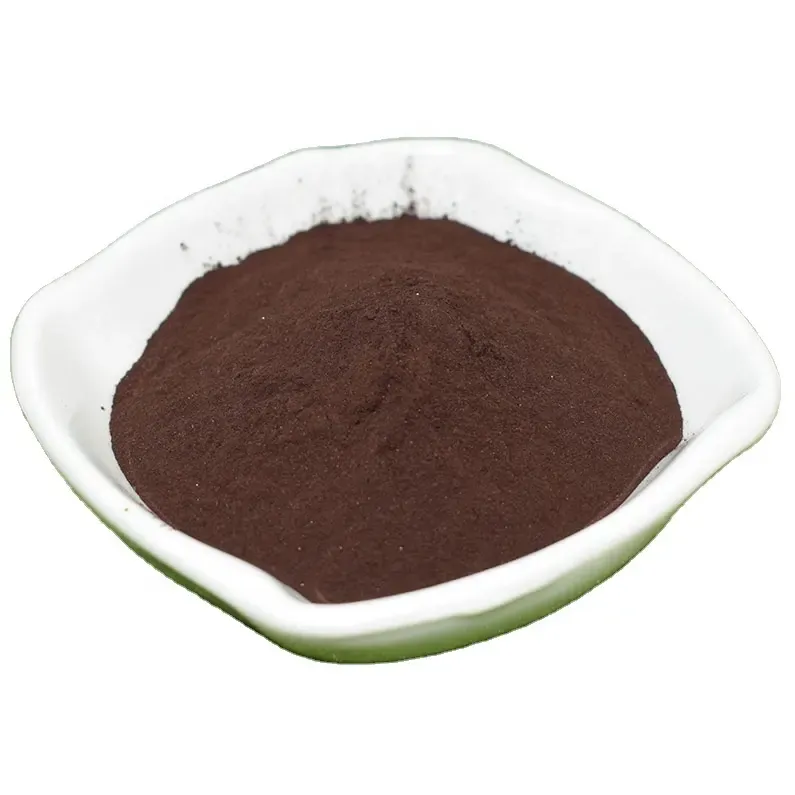
Mai . 23, 2025 09:28 Zurück zur Liste
Organic Fertilizer: Natural Nutrition for Healthier Soil and Stronger Crops
As growers shift toward sustainability and chemical-free farming, organischer Dünger has become a preferred choice for enriching soil and boosting plant growth. Whether you're cultivating vegetables at home or managing a commercial farm, using fertilizers organic can improve soil health, support long-term yields, and align with eco-conscious practices.

In this guide, we explore the benefits of organic fertilizer for vegetables, the types available, and how to choose the right product based on your crop needs and the organic fertilizer price.
What Is Organic Fertilizer?
Organic fertilizer is made from natural, biodegradable materials like plant residues, animal waste, compost, or minerals. Unlike synthetic fertilizers, it feeds the soil rather than just the plant, improving microbial activity and long-term soil structure.
Key characteristics:
Derived from natural sources (manure, compost, bone meal, seaweed, etc.)
Slow-release nutrients that support consistent growth
Encourages beneficial microbes and earthworms
Enhances water retention and root development
Why Use Organic Fertilizer for Vegetables?
Using organic fertilizer for vegetables helps improve both the yield and the quality of your produce without exposing your soil (or your food) to harmful chemicals.
Benefits include: ✅ Safe for consumption – No chemical residues on food
✅ Improves flavor and shelf life – Healthier soil = more nutrient-dense crops
✅ Reduces soil burnout – Supports long-term soil fertility
✅ Eco-friendly – Biodegradable and renewable inputs
✅ Strengthens disease resistance – Healthier plants are more resilient
Vegetable gardens especially benefit from fertilizers organic because they need a steady supply of nutrients without risking root burn or chemical buildup in the soil.
Common Types of Organic Fertilizer
There are many forms of organischer Dünger to suit different crops and growing conditions. Here are some of the most widely used:
|
Fertilizer Type |
Quelle |
Best For |
|
Compost |
Decomposed plant/food waste |
All-purpose soil enrichment |
|
Manure |
Cow, chicken, or horse waste |
Leafy greens, heavy feeders (corn, squash) |
|
Bone Meal |
Ground animal bones |
Root crops, flowering vegetables |
|
Blood Meal |
Dried animal blood |
Nitrogen-loving crops like spinach, lettuce |
|
Fish Emulsion |
Fish by-products in liquid form |
Fast nutrient uptake in container gardens |
|
Seaweed Extract |
Marine plants |
Micronutrients and overall plant health |
|
Vermicompost |
Worm castings |
Soil microbes and disease suppression |
Each type varies in nutrient content (NPK ratio), so it’s important to match the fertilizer to your vegetable crop’s needs.
Application Tips for Organic Fertilizers
Pre-planting: Mix compost or manure into the soil a few weeks before planting.
Top-dressing: Sprinkle dry fertilizer around growing plants and lightly mix it into the soil.
Liquid feeding: Use fish emulsion or seaweed fertilizer in water for faster absorption.
Crop-specific: Tomatoes, peppers, and cucumbers benefit from higher potassium and phosphorus; leafy greens need more nitrogen.
Pro tip: Always follow product instructions to avoid overapplication, even with natural fertilizers.
Understanding Organic Fertilizer Price
The organic fertilizer price depends on several factors:
|
Factor |
Impact on Price |
|
Source Material |
Manure and compost are cheaper than bone meal or seaweed extract |
|
Form |
Liquid fertilizers often cost more than dry or granular types |
|
Certification |
Certified organic inputs carry a premium |
|
Packaging Size |
Bulk 50kg sacks offer better per-unit cost |
|
Brand and Processing |
Artisan or small-batch products may cost more |
Typical price ranges:
|
Fertilizer Type |
Price Range (USD) |
|
Compost (bulk) |
$20–$50 per cubic yard |
|
Chicken manure (bagged) |
$8–$15 per 25kg bag |
|
Bone meal |
$1.00–$2.00 per pound |
|
Fish emulsion (liquid) |
$10–$25 per liter |
|
Certified organic blends |
$0.50–$1.50 per kg (bulk pricing) |
Bulk buyers such as farms or nurseries often negotiate directly with manufacturers or cooperatives for better rates.
How to Buy Organic Fertilizer
When buying in bulk or internationally, request:
Product analysis (NPK values)
Organic certification (USDA, EU, etc.)
Shelf life and storage instructions
Organic Fertilizer FAQs
Q1: Can I use organic fertilizer with chemical fertilizer?
A: Yes, but use caution. Blending both can work, but organic fertilizer is usually best for long-term soil health.
Q2: How often should I apply organic fertilizer to vegetables?
A: Every 3–4 weeks during the growing season, depending on the crop and type of fertilizer.
Q3: Is compost enough, or do I need other organic fertilizers too?
A: Compost improves soil structure, but for higher yields or nutrient-specific needs, supplements like bone meal or fish emulsion are helpful.
Q4: Is there an organic fertilizer for all-purpose use?
A: Yes, many blended products are formulated for general garden use and labeled with balanced NPK ratios.
Q5: Can I make my own organic fertilizer?
A: Absolutely. Home composting, worm bins, and DIY compost teas are effective ways to produce natural fertilizer.
Using organischer Dünger isn’t just a trend — it’s a smarter way to grow stronger plants while protecting your soil and the environment. Whether you're growing tomatoes in your backyard or managing a vegetable farm, choosing the right fertilizers organic can lead to healthier harvests and more sustainable practices.
-
Organic Pepper Fertilizer – Sustainable Growth for Healthier Crops and Soils
NachrichtNov.25,2025
-
Sustainable Growth with Organic Phosphate Fertilizer | Benefits & Innovations
NachrichtNov.24,2025
-
Organic Phosphorus and Potassium Fertilizer: Sustainable Soil Nutrition & Global Impact
NachrichtNov.24,2025
-
Organic Phosphorus Fertilizer: Sustainable Nutrient Solutions for Modern Agriculture
NachrichtNov.23,2025
-
Sustainable Growth with Organic Phosphorus Plant Fertilizer | HH Fertilizer
NachrichtNov.23,2025
-
Organic Plant Meal Fertilizer for Sustainable Agriculture – Benefits & Innovations
NachrichtNov.22,2025
